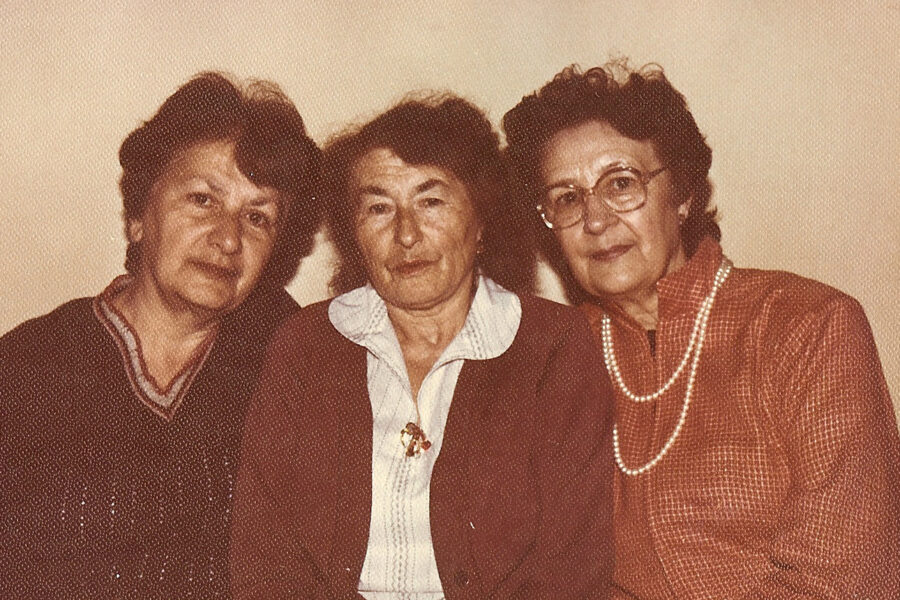We were born Nelli and Rema Goldin on October 20, 1928, in Minsk, the capital of Byelorussia. Our parents were Semyon and Nekhama (Reer) Goldin, and we twins were their first two children. Our paternal grandparents were Yuda and Leah Goldin, and our maternal grandparents were Yaakov and Sarah Reer. Our father was born and lived with his parents in Malyye Bobryy, located in the Minsk area. Our mother lived in Krupki, a village that also was in the Minsk region. Both families moved to Minsk during the 1920s.
From a very early age, we were extremely close; it was always “we.” We dressed alike. We had the same friends from the neighborhood. We had aunts, uncles, and cousins in Minsk with whom our family maintained close relationships. We were inseparable.
Our parents worked in an Oktyabr clothing factory in Minsk—our mother as a technologist and our father as a mechanic. At some point, the factory sent our father to study at a komvuz (communist higher educational institution). After graduation he was assigned to Ushosdor (the highway maintenance administration), where he worked until the start of the war as the foreman of Section 711 of the Minsk-Moscow highway.
On June 21, 1941, our father took us both to the Young Pioneer camp not far away from Minsk. The next day, on June 22 at 4 a.m., he learned that war had begun. The German invasion of the Soviet Union came as a great shock. Our father decided to go to the Pioneer camp to bring us back to Minsk. Before he left for the camp, however, Minsk was being heavily bombed, and he took our mother, her parents, and other relatives to a bomb shelter.
Father found us in the camp two days later, on June 24, but Minsk was burning, and taking us back there was not safe. Father decided to leave us with someone he knew before the war who lived outside Minsk. He returned to the city to find Mother and the rest of the family, but they were no longer in the bomb shelter where he had left them only a few days earlier.
Unknown to him, Mother and our relatives had fled the shelter due to the German bombing. Our mother, who was pregnant before the war began, gave birth to our sister Tsilya on June 26, 1941, somewhere in the woods east of the city. Due to the rapid advance of the German forces, Mother, her parents, and baby Tsilya could not go farther and had to return to Minsk.
German troops occupied the city on June 28, two days after Tsilya’s birth. Soon the Nazis fenced an area on Yubileynaya Square where they established a ghetto. Our mother, baby sister Tsilya, and other paternal and maternal relatives were incarcerated in the Minsk ghetto, which had been established in mid-July 1941.
Meanwhile, after his unsuccessful search in Minsk, Father returned to us with no mother but with a horse and wagon. We started on our way to the East and made several stops: at our father’s birthplace, the village of Malyye Bobryy, where we did not find any relatives; and then at our mother’s birthplace, the village of Krupki, where we met mother’s sister Auntie Esther, who joined us. Together we reached the city of Mogilev, where Father put us on a train headed east, and then he went straight to the local military enlistment office. Soon afterward he was sent to the front line.
The evacuation train took us to Suhotin, a small village in the Karaganda region of Kazakhstan. Auntie Esther’s husband, Ruvim, had been exiled there during Stalinist purges. There were other exiles in Suhotin, too. The train journey lasted about three or four weeks. After we finally arrived and were situated, we felt safe. While in evacuation we received a few postcards from our father that he sent from the front line. We have cherished those cards all our life.
Our father was killed on November 23, 1942, in the Stalingrad battle.
Nearly all our loved ones in the Minsk ghetto perished in the massacres the Germans carried out between their occupation of Minsk in 1941 and the ghetto’s liquidation, completed in October 1943. Our family members survived the first aktion, on November 7, 1941, when many ghetto residents were taken to Maly Trostenets, 18 kilometers from Minsk, and shot and killed there. One of the largest mass killings occurred between July 28–31, 1942.* Our mother and baby Tsilya were murdered together with many other family members on July 28. By the end of the liquidation in fall 1943, nineteen members of our family—eleven adults and eight children—had died in the Minsk ghetto.
Two of our aunts survived. Auntie Tanya, the wife of our father’s brother, was a slave laborer at the brick plant, and during the pogrom was not allowed to return home for several days. When she finally came back home four days after the pogrom, the house was empty. A German man helped her sneak away from the ghetto. She reached the forest and joined a guerrilla detachment for which she served as a nurse.
Auntie Raya, our mother’s sister, survived the ghetto and during the liquidation of the Minsk ghetto she was taken to Germany as a forced laborer. She and others managed to escape from the freight train and returned to Minsk. By that time, Minsk already had been liberated, on July 3, 1944.
Nelli Libo and Rema Gimburg, Never Hear, Never Forget: Vol. II, 2022






